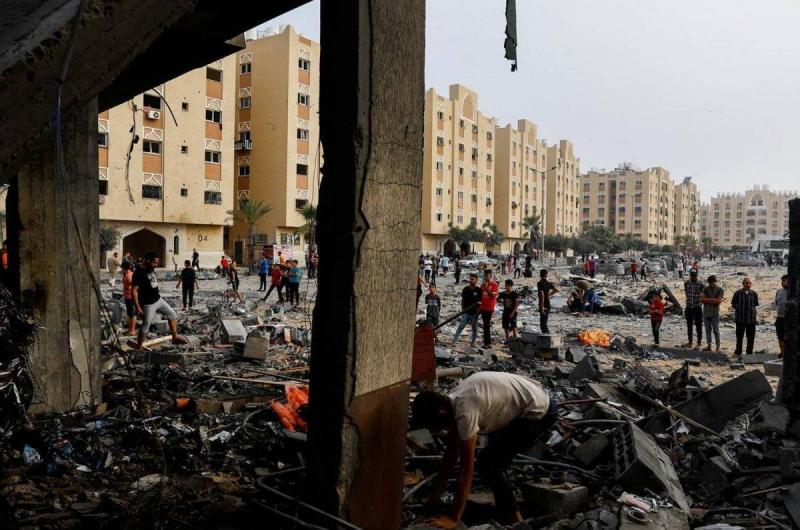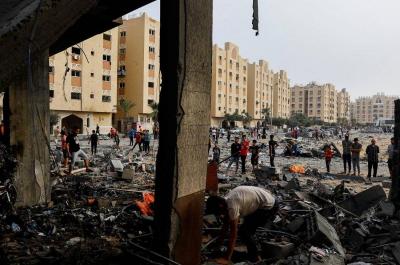Ahead of expected talks between U.S. President Joe Biden and Israeli Prime Minister Benjamin Netanyahu, who is visiting Washington, a senior U.S. official revealed on Wednesday a new hope regarding negotiations aimed at reaching a ceasefire agreement in Gaza in exchange for the release of prisoners.
The official stated that the deal between Hamas and Israel is in its final stages and an agreement might be reached, and that Biden will discuss the remaining gaps with Netanyahu on Thursday. The high-ranking official, who requested anonymity, indicated that the remaining obstacles are surmountable. He noted that "there will be significant activity next week" towards reaching the long-awaited agreement, adding that the agreement is "not only possible but essential and necessary."
The official also mentioned that achieving a ceasefire currently depends on a few issues related to how the agreement will be implemented, especially after Hamas softened its stance and agreed to negotiate the release of prisoners without requiring a permanent ceasefire as a precondition. Furthermore, he predicted that the meeting with Netanyahu will involve discussions on "how to bridge these final gaps," emphasizing that there are American demands that Israel needs to meet. However, he pointed out that "the key matters are in Hamas's hands because of the hostages in their possession."
These developments came after informed sources on the negotiations reported that all details of the deal between Israel, the intermediaries, and Hamas have already been agreed upon. They added earlier on Wednesday, citing knowledgeable officials, that discussions even covered security difficulties. It was also noted that the implications of Israel's withdrawal from the Philadelphi route and the return of residents from northern Gaza were discussed.
Moreover, the consequences of the Prime Minister's statement that the implementation of the deal depends solely on the appropriate political timing for him were explored, according to the Israeli newspaper "Haaretz." Sources knowledgeable about the discussions revealed that the negotiations between the two parties face four main obstacles that have thus far prevented the conclusion of a ceasefire agreement. The first contentious point involves the issue of the kidnapped prisoners, whom Israel demands be released, according to the American news agency Bloomberg.
The second point involves Prime Minister Netanyahu's demand that militants not return to northern Gaza, while the third point concerns his desire for Israeli forces to remain at the Rafah crossing in the south of the territory. The fourth contentious point is Netanyahu's wish that a ceasefire not be binding on Israel indefinitely. Another potential point of contention involves the clause that obliges Israel to withdraw its forces from populated areas in Gaza.
This comes amid pressure on Netanyahu to agree to an exchange deal as soon as possible, despite his insistence on achieving the war's objective of eliminating Hamas.




